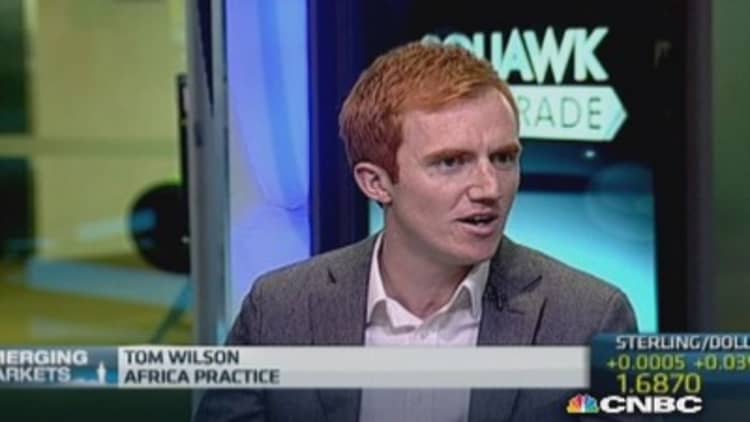
South Africa is gearing up for the first election since the death of its first black president and post-apartheid figurehead, Nelson Mandela. But the party he led to election victory in 1994, which has dominated the country's politics ever since, could be falling out of favor with voters, analysts told CNBC.
The African National Congress (ANC) has been in power since the abolition of apartheid in South Africa two decades ago after it won power in the 1994 election with 62.65 percent of the vote.
Read MoreWhat Mandela meant to South Africa's economy
In the three elections after that, the ANC consistently won over 65 percent of the vote. But the government's image has been tarnished over the past few years with a rapidly decelerating economy and corruption.
"The Madiba (Mandela's Xhosa tribal name) factor will play a role in the elections in that it tends to reinforce voter loyalty to 'brand ANC'," Anne Fruehauf, senior vice president at Teneo Intelligence told CNBC in an email.
"But increasingly the Mandela legacy serves as a contrast to today's generation of ANC leaders."
South Africans 'frustrated'
South Africa's economy has been on a slow downward grind over the past few years. The economy grew at 5.6 percent in 2006 but has declined steadily to 1.9 percent GDP growth in 2013, according to the official statistics office.
South Africa is a key as it is the second-largest economy in Africa. Mining accounts for around 8 percent of the country's GDP and is responsible for 14 percent of jobs in in the non-agricultural sector, according to the Chamber of Mines of South Africa.
The country was also hit by the emerging market sell-off this year. The country's currency, the rand, down 18 percent against the dollar in the past 12 months. The poor economic backdrop has also seen to strikes in the mining sector with workers demanding higher wages.
Read MoreBranson: Mandela embraced free markets...with responsibility
"South Africans are very frustrated because of the economic environment…and what we think is that the ANC is going to lose some of its support base and the voters are actually moving to some opposition parties which are getting stronger," Anna Rosenberg, associate Sub-Saharan Africa practice leader at Frontier Strategy Group told CNBC in a TV interview on Friday.
President Jacob Zuma has already felt the effects of his unpopularity, following accusations that he has spent government money on a $23 million on upgrades to his house, including installing a swimming pool and cattle enclosure. Zuma was jeered and booed during his speech at Mandela's memorial.
Political spectrum 'shift'
Still analysts are in no doubt that the ANC will win the election, and polls are pointing towards a 63 percent share of the vote, but the rise of some opposition parties could pose serious challenges in the future.
Former senior government ministers are calling on voters to spoil their ballots in a "Vote No" campaign, while rising left-wing parties such as the Economic Freedom Fighters -- which is calling for the nationalization of the banking and mining sectors -- could attract disillusioned youth and workers.
The centrist party called the Democratic Alliance is the main opposition however, and while the 2014 election is unlikely to see a radical shift in power, it could cause knock-on effects in the future, according to analysts
Read MoreMandela signer hits back: I'm sign language champion
"We could seefor the first time that ANC vote drop below that really important 60 percentthreshold mark and that in turn will have an impact on how the ANC governmentshapes up next time around," Tom Wilson, director of intelligence and analysisat Africa Practice, told CNBC in a TV interview.
"If they(left-wing parties) were to take a large stake in this next election, thenmoving on to the next election cycle in 2019 you could see a shift of the wholepolitical spectrum further to the left."


